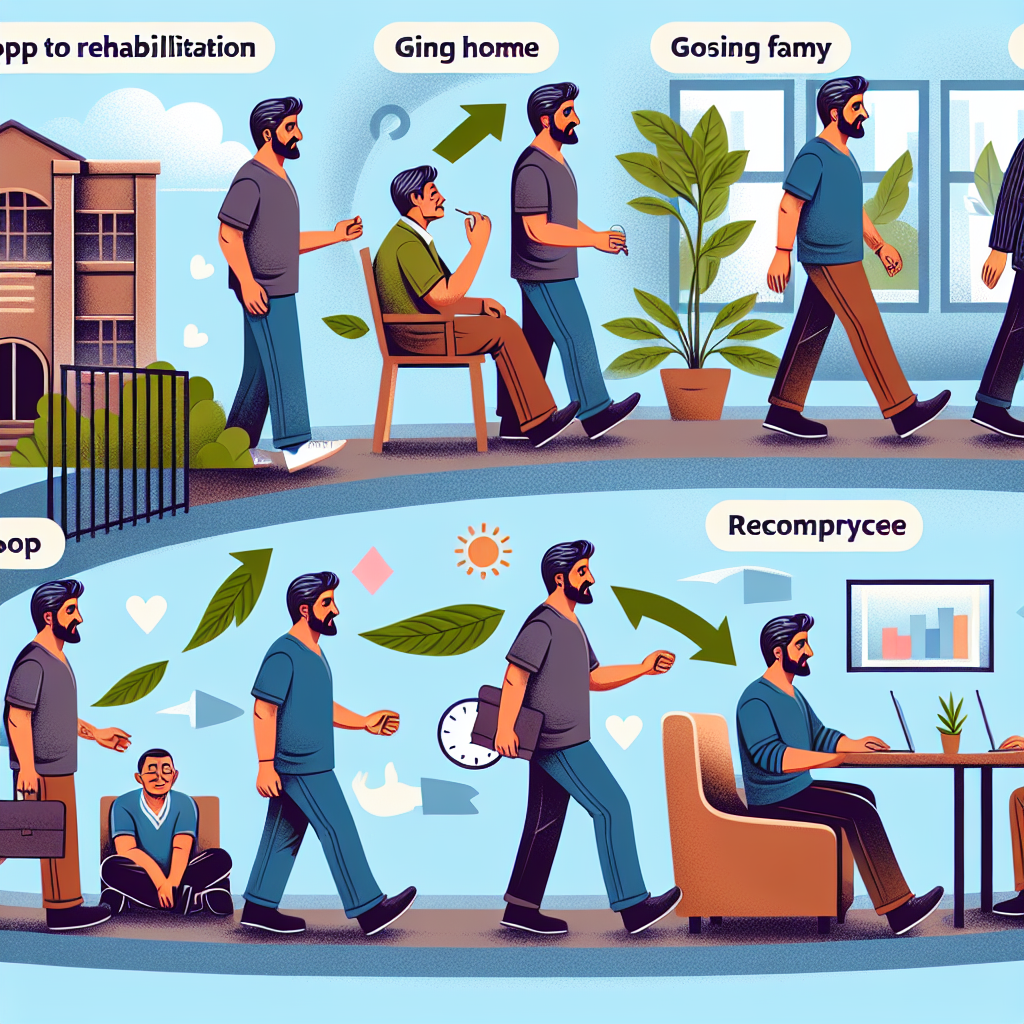-
Table of Contents
- Introduction
- Emotional Support: The Backbone of Heroin Addiction Recovery
- Building a Sober Network: The Role of Support Groups in Recovery
- Accountability and Motivation: How Support Groups Keep You on Track
- Sharing Experiences: The Healing Power of Group Therapy in Heroin Addiction Recovery
- Q&A
- Conclusion
“Together We Heal: Empowering Heroin Addiction Recovery Through Support Groups”
Introduction
Support groups play a crucial role in the recovery process for individuals battling heroin addiction. These groups provide a safe and supportive environment where individuals can share their experiences, challenges, and successes with others who understand their struggles. By fostering a sense of community and belonging, support groups help reduce feelings of isolation and stigma often associated with addiction. They offer emotional support, practical advice, and coping strategies, which are essential for maintaining sobriety. Additionally, support groups can connect individuals with resources and professional help, further aiding in their recovery journey. Through regular meetings and ongoing support, these groups empower individuals to stay committed to their recovery goals and build a healthier, drug-free life.
Emotional Support: The Backbone of Heroin Addiction Recovery
Emotional support is the backbone of heroin addiction recovery, providing a crucial foundation for individuals striving to reclaim their lives from the grip of addiction. Support groups play an instrumental role in this process, offering a safe and understanding environment where individuals can share their experiences, challenges, and triumphs. These groups foster a sense of community and belonging, which is often missing in the lives of those battling addiction. By connecting with others who have faced similar struggles, individuals can find solace and strength in knowing they are not alone.
One of the most significant benefits of support groups is the emotional validation they provide. Addiction can be an isolating experience, often accompanied by feelings of shame, guilt, and hopelessness. In a support group, members can express their emotions without fear of judgment, knowing that others in the group have likely felt the same way. This validation can be incredibly empowering, helping individuals to accept their feelings and begin the healing process. Moreover, hearing others’ stories of recovery can inspire hope and motivate individuals to continue their journey toward sobriety.
Support groups also offer practical advice and coping strategies that can be invaluable in the recovery process. Members can share what has worked for them, providing a wealth of knowledge and resources that can help others navigate the challenges of addiction recovery. This exchange of information can be particularly beneficial for those who are new to recovery, as it can help them develop effective strategies for managing cravings, avoiding triggers, and building a healthier lifestyle. Additionally, support groups often invite guest speakers, such as addiction counselors or medical professionals, who can provide expert insights and guidance.
Another critical aspect of support groups is the accountability they foster. Regular attendance at meetings encourages individuals to stay committed to their recovery goals, as they know they will be checking in with others who care about their progress. This sense of accountability can be a powerful motivator, helping individuals to stay on track even when they face setbacks or challenges. Furthermore, the relationships formed within support groups can provide a network of support that extends beyond the meetings themselves. Members often form close bonds and become a source of encouragement and assistance for one another, offering a lifeline during difficult times.
The sense of community and connection that support groups provide can also help to combat the loneliness and isolation that often accompany addiction. Many individuals struggling with heroin addiction have experienced strained or broken relationships with family and friends, leaving them feeling disconnected and alone. Support groups offer a space where individuals can rebuild their social connections and develop new, healthy relationships. These connections can be a vital source of emotional support, helping individuals to feel understood and valued.
In addition to the emotional benefits, support groups can also help individuals to develop a sense of purpose and meaning in their lives. Many support groups encourage members to take on leadership roles or participate in group activities, which can help to build self-esteem and a sense of accomplishment. By contributing to the group and helping others, individuals can find a renewed sense of purpose and direction, which can be a powerful motivator in their recovery journey.
In conclusion, support groups play a vital role in heroin addiction recovery by providing emotional support, practical advice, accountability, and a sense of community. These groups offer a safe and understanding environment where individuals can share their experiences, find validation, and build meaningful connections. By fostering a sense of belonging and purpose, support groups help individuals to navigate the challenges of recovery and build a healthier, more fulfilling life.
Building a Sober Network: The Role of Support Groups in Recovery
Support groups play a pivotal role in the journey of recovery from heroin addiction, offering a lifeline to those seeking to rebuild their lives. These groups provide a safe and supportive environment where individuals can share their experiences, challenges, and triumphs with others who understand their struggles. By fostering a sense of community and belonging, support groups help individuals feel less isolated and more connected, which is crucial for maintaining sobriety.
One of the most significant benefits of support groups is the opportunity for individuals to build a sober network. This network consists of peers who are also committed to recovery, creating a foundation of mutual support and accountability. In these groups, members can share practical advice, coping strategies, and encouragement, which can be incredibly empowering. Knowing that others have faced similar challenges and have successfully navigated them can inspire hope and determination in those who are still in the early stages of recovery.
Moreover, support groups often provide a structured environment that can help individuals establish a routine and set goals. Regular meetings offer a sense of consistency and stability, which can be particularly beneficial for those who are trying to break free from the chaotic and unpredictable nature of addiction. The structure of these meetings can also help individuals develop a sense of responsibility and commitment, both to themselves and to the group.
In addition to the emotional and psychological support, support groups can also offer practical resources and information. Many groups are facilitated by professionals or individuals with extensive experience in addiction recovery, who can provide valuable insights and guidance. These facilitators can help members navigate the complexities of recovery, from finding treatment options to managing triggers and preventing relapse. Access to such resources can be instrumental in helping individuals make informed decisions and take proactive steps towards their recovery.
Furthermore, support groups can help individuals develop essential life skills that are necessary for long-term sobriety. Through group discussions and activities, members can learn effective communication, problem-solving, and stress management techniques. These skills are not only vital for maintaining sobriety but also for improving overall quality of life. By practicing these skills in a supportive environment, individuals can build confidence and resilience, which can help them face challenges more effectively.
Another important aspect of support groups is the sense of accountability they provide. Knowing that they will be sharing their progress with the group can motivate individuals to stay on track and make positive choices. This accountability can also help individuals recognize and address any potential setbacks before they escalate into more significant issues. The collective wisdom and experience of the group can offer valuable perspectives and solutions, helping members stay focused on their recovery goals.
Lastly, support groups can foster a sense of purpose and fulfillment. Many individuals in recovery find that helping others can be a powerful motivator and a source of personal growth. By sharing their stories and offering support to others, individuals can gain a sense of accomplishment and self-worth. This sense of purpose can be a driving force in their recovery journey, helping them stay committed to their sobriety and continue to make positive changes in their lives.
In conclusion, support groups are an invaluable resource for individuals recovering from heroin addiction. They provide a supportive and understanding community, practical resources, and opportunities for personal growth. By building a sober network through these groups, individuals can find the strength, hope, and inspiration they need to achieve and maintain long-term sobriety.
Accountability and Motivation: How Support Groups Keep You on Track
Support groups play a pivotal role in the recovery journey of individuals battling heroin addiction, offering a unique blend of accountability and motivation that is often crucial for long-term success. These groups provide a safe and supportive environment where individuals can share their experiences, challenges, and triumphs, fostering a sense of community and belonging that is essential for recovery. By participating in support groups, individuals are not only held accountable for their actions but are also motivated to stay on track through the encouragement and shared experiences of others who understand their struggles.
One of the primary ways support groups aid in heroin addiction recovery is through the establishment of accountability. When individuals commit to attending regular meetings, they are making a promise to themselves and to the group to stay committed to their recovery. This sense of accountability is reinforced by the group dynamic, where members are encouraged to share their progress and setbacks openly. Knowing that others are aware of their journey and are rooting for their success can be a powerful motivator to stay on the path to recovery. Additionally, the structure of support groups often includes setting personal goals and milestones, which further reinforces accountability and provides a tangible way to measure progress.
Moreover, support groups offer a wealth of motivation that can be instrumental in overcoming the challenges of heroin addiction. Hearing the stories of others who have successfully navigated the recovery process can inspire hope and determination. These shared experiences serve as a reminder that recovery is possible and that the effort is worthwhile. The encouragement and positive reinforcement from group members can help individuals stay focused and motivated, even when faced with setbacks or difficult times. The collective wisdom and support of the group can provide practical strategies and coping mechanisms that individuals can apply in their own lives, making the recovery process more manageable.
In addition to accountability and motivation, support groups also provide a sense of community that is often lacking in the lives of those struggling with addiction. The isolation and stigma associated with heroin addiction can make it difficult for individuals to seek help and connect with others. Support groups break down these barriers by creating an inclusive and non-judgmental space where individuals can be themselves and share their experiences without fear of criticism. This sense of belonging can be incredibly healing and can help individuals rebuild their self-esteem and confidence, which are often eroded by addiction.
Furthermore, the relationships formed within support groups can extend beyond the meetings, providing a network of support that individuals can rely on in times of need. These connections can be a lifeline, offering emotional support, practical advice, and a sense of camaraderie that can make the recovery journey less daunting. The shared bond of working towards a common goal can create deep and lasting friendships that provide ongoing support and encouragement.
In conclusion, support groups are an invaluable resource for individuals recovering from heroin addiction, offering a combination of accountability, motivation, and community that can significantly enhance the recovery process. By participating in these groups, individuals are not only held accountable for their actions but are also inspired by the successes of others and supported by a network of peers who understand their struggles. This powerful combination can help individuals stay on track and achieve lasting recovery, proving that with the right support, overcoming heroin addiction is possible.
Sharing Experiences: The Healing Power of Group Therapy in Heroin Addiction Recovery
In the journey of heroin addiction recovery, the path to healing is often fraught with challenges and setbacks. However, one of the most powerful tools in this arduous journey is the support group. Sharing experiences within a group therapy setting can be a transformative process, offering a unique blend of empathy, understanding, and collective strength that is often difficult to find elsewhere. The healing power of group therapy lies in its ability to create a safe space where individuals can openly share their struggles, triumphs, and everything in between.
When individuals come together in a support group, they find themselves surrounded by others who have walked similar paths. This shared experience fosters a sense of camaraderie and belonging that is crucial for emotional healing. The isolation that often accompanies addiction can be profoundly debilitating, but within a support group, members realize they are not alone. This realization can be the first step towards breaking the cycle of addiction, as it instills hope and a sense of possibility.
Moreover, the act of sharing personal stories within a group setting can be incredibly cathartic. Verbalizing one’s experiences allows individuals to process their emotions and gain new perspectives on their journey. Hearing others’ stories can also provide valuable insights and coping strategies that might not have been considered before. This exchange of experiences and knowledge creates a rich tapestry of support that can be instrumental in overcoming the grip of heroin addiction.
In addition to emotional support, group therapy offers practical benefits. Members often share resources, such as information about treatment options, coping mechanisms, and strategies for avoiding relapse. This collective wisdom can be a lifeline for those who are struggling to navigate the complexities of recovery. Furthermore, the accountability that comes with being part of a group can be a powerful motivator. Knowing that others are invested in their success can encourage individuals to stay committed to their recovery goals.
The structure of support groups also plays a significant role in their effectiveness. Regular meetings provide a consistent routine, which can be particularly beneficial for those in recovery. The predictability and stability of these meetings can help individuals establish a sense of normalcy and control in their lives. Additionally, the group setting encourages active participation and engagement, which can boost self-esteem and confidence. As members share their progress and setbacks, they learn to celebrate their achievements and view their challenges as opportunities for growth.
Another critical aspect of group therapy is the development of interpersonal skills. Addiction often strains relationships and erodes social skills, but within a support group, individuals have the opportunity to rebuild these essential connections. Through active listening, empathy, and constructive feedback, members learn to communicate more effectively and build healthier relationships. These skills are not only vital for recovery but also for leading a fulfilling and balanced life.
Ultimately, the healing power of group therapy in heroin addiction recovery lies in the collective strength and resilience of its members. By sharing their experiences, individuals find solace, support, and inspiration in one another. The bonds formed within these groups can be a source of enduring strength, helping members navigate the ups and downs of recovery with greater confidence and hope. In this shared journey, the power of community becomes a beacon of light, guiding individuals towards a brighter, healthier future.
Q&A
1. **Question:** How do support groups provide emotional support in heroin addiction recovery?
**Answer:** Support groups offer a safe space for individuals to share their experiences, receive empathy, and gain encouragement from others who understand their struggles.
2. **Question:** In what way do support groups help with accountability in heroin addiction recovery?
**Answer:** Support groups foster a sense of accountability by encouraging regular attendance and participation, which helps individuals stay committed to their recovery goals.
3. **Question:** How do support groups contribute to the development of coping strategies in heroin addiction recovery?
**Answer:** Support groups provide a platform for members to share effective coping strategies and techniques, which can be adopted by others to manage cravings and avoid relapse.
4. **Question:** What role do support groups play in reducing the sense of isolation in heroin addiction recovery?
**Answer:** Support groups help reduce feelings of isolation by connecting individuals with others who are facing similar challenges, thereby creating a sense of community and belonging.
Conclusion
Support groups play a crucial role in heroin addiction recovery by providing emotional support, fostering a sense of community, and offering practical advice from individuals who have faced similar challenges. They help reduce feelings of isolation, promote accountability, and encourage the development of coping strategies. Additionally, support groups often facilitate access to resources and professional help, enhancing the overall recovery process. Through shared experiences and mutual encouragement, individuals in support groups can find strength and hope, significantly improving their chances of long-term recovery.



